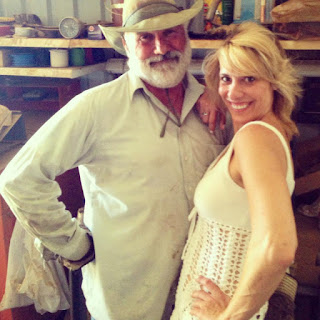1Q + Q + Q + Q = ?????
My rating: 3 of 5 stars
Bookclub read this in January, but I notice that this book is in the quarterfinals for Audible's best of 2011 contest so I am thinking about it again. Unlike 1984, which is a bad good book, this book is a good bad book. Also unlike 1984, it is a fantasy that is brain candy without much point. There is no question that Murakami is an artist (unlike Orwell, who was so passionate about an idea that his terminology survives despite his lack of style). For example, take this description of the heroine's frown:
"Whenever something caused her to frown or grimace, however, her features underwent dramatic changes. The muscles of her face tightened, pulling in several directions at once and emphasizing the lack of symmetry in the overall structure. Deep wrinkles formed in her skin, her eyes suddenly drew inward, her nose and mouth became violently distorted, her jaw twisted to the side, and her lips curled back, exposing Aomame's large white teeth. Instantly, she became a wholly different person, as if a cord had broken, dropping the mask that normally covered her face. The shocking transformation terrified anyone who saw it, so she was careful never to frown in the presence of a stranger. She would contort her face only when she was alone or when she was threatening a man who displeased her."
Now, that is a frown that tells you loads about the heroine, who means business, even though her name means green bean. And while some people have no patience for that kind of description, the rest of us love it, which is why Murakami is a best selling author in Japan.
What fascinates me with this book is the constant Western references -- typical Asian books do not have this, so it is interesting that a Japanese author who was so heavily influenced by the West is such a big seller in Japan. I even think the ending draws largely from a famous children's book. Throughout the book I kept wondering how much of the Western feel was from the translation, verses from the author, so I loved that the audio version includes translator interviews.
And while I am talking about the audio, I must say that the narrators were wonderful.
Frankly, I liked the book. But the US publisher made two HUGE mistakes. First, I hated the graphic love scenes. Was it because I was listening to the book that it felt like erotica? If I had been reading, I would have just thumbed through to get back to the story, except that it eventually became a part of the story. That aspect almost ruined the book for me -- I almost quit -- so I warn you not to read the book if graphic sex scenes bother you in the least. The US publishers should have diluted this, with the author's permission of course. Failing that, a simple warning "sexy fantasy" would do! (Note: I have never complained about it in a book review before, just warn me!).
The second mistake was that this book should have been published in series, instead of all together, just like it was in Japan. The thickness of the book turns off even the most ardent reader and makes it hard to digest the story. Although more costly, I think a series would have been more enjoyable, and more successful.
So, that leaves the "Little People" verses "Big Brother" [1984]. Murakami really could have done something with that brilliant idea. What an imagination to come up with something that truly does contrast so well with the Big Brother idea. Of course, I think current days have more to do with Little People than the true year 1984 did -- with the internet I believe we are in a "Little People" age. But even in 1984 there were little people cults that were controlling, so it still could have worked. But he doesn't really develop the idea, so don't expect it, even though the book occasionally evokes 1984, making you expect some kind of dystopian diatribe. In the end, it's just a big little fantasy that has an enticing heroine and hero, who have a problem that needs solving, in a world of two moons that the little people control.
View all my reviews










Comments